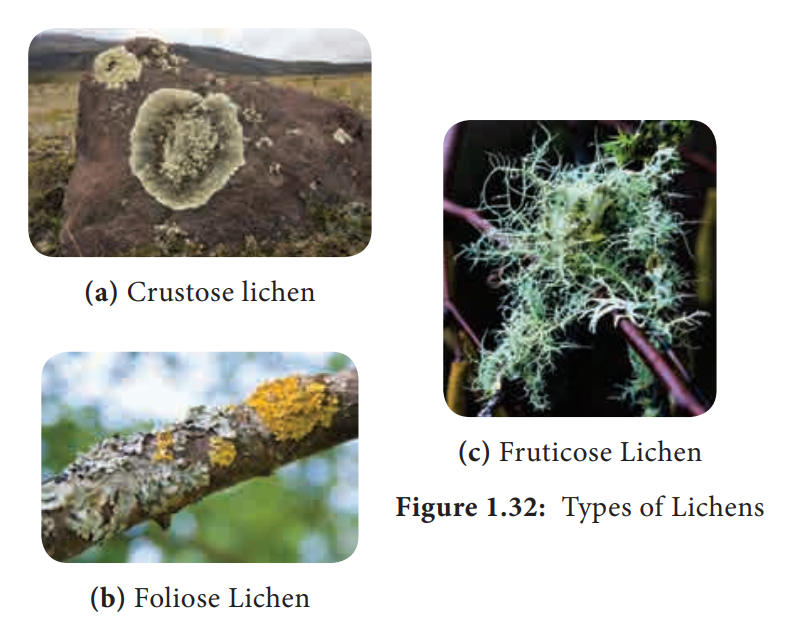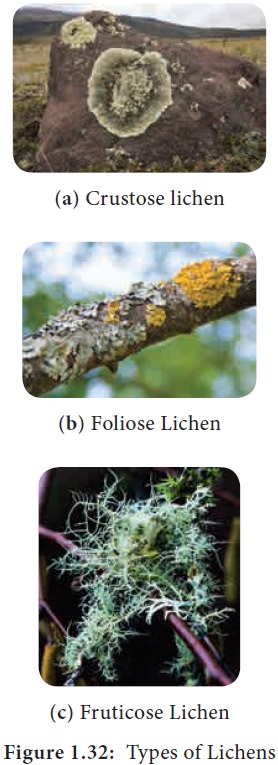Chapter: 11th Botany : Chapter 1 : Living World
Lichens and its Classification - Fungi

Lichens
The symbiotic association between algae and fungi is called lichens. The algal partner is called Phycobiont or Photobiont., and the fungal partner is called Mycobiont. Algae provide nutrition for fungal partner in turn fungi provide protection and also help to fix the thallus to the substratum through rhizinae.
Asexual reproduction takes place through
fragmentation, Soredia and Isidia. Phycobionts reproduce by akinetes,
hormogonia, aplanospore etc., Mycobionts undergo sexual reproduction and
produce ascocarps.
Classification
•
Based on the habitat lichens are classified into
following types: Corticolous( on
Bark) Lignicolous(on Wood) Saxicolous(on rocks) Terricolous(on ground) Marine(on siliceous rocks of sea) Fresh water(on
siliceous rock of fresh water).
• On the basis of morphology of the thallus they are divided into Leprose (a distinct fungal layer is absent) Crustose-crust like; Foliose-leaf like; Fruticose- branched pendulous shrub like (Figure 1.32).

•
The distribution of algal cells distinguishes
lichens into two forms namely Homoiomerous (Algal cells evenly distributed in
the thallus) and Heteromerous (a distinct layer of algae and fungi present).
• If the fungal partner of lichen belongs to ascomycetes, it is called Ascolichen and if it is basidiomycetes it is called Basidiolichen.
Lichens secrete organic acids like Oxalic acids which corrodes the rock surface and helps in weathering of rocks, thus acting as pioneers in Xerosere. Usnic acid produced from lichens show antibiotic properties. Lichens are sensitive to air pollutants especially to sulphur- di-oxide. Therefore, they are considered as pollution indicators. The dye present in litmus paper used as acid base indicator in the laboratories is obtained from Roccella montagnei. Cladonia rangiferina (Reindeer moss) is used as food for animals living in Tundra regions.
Related Topics